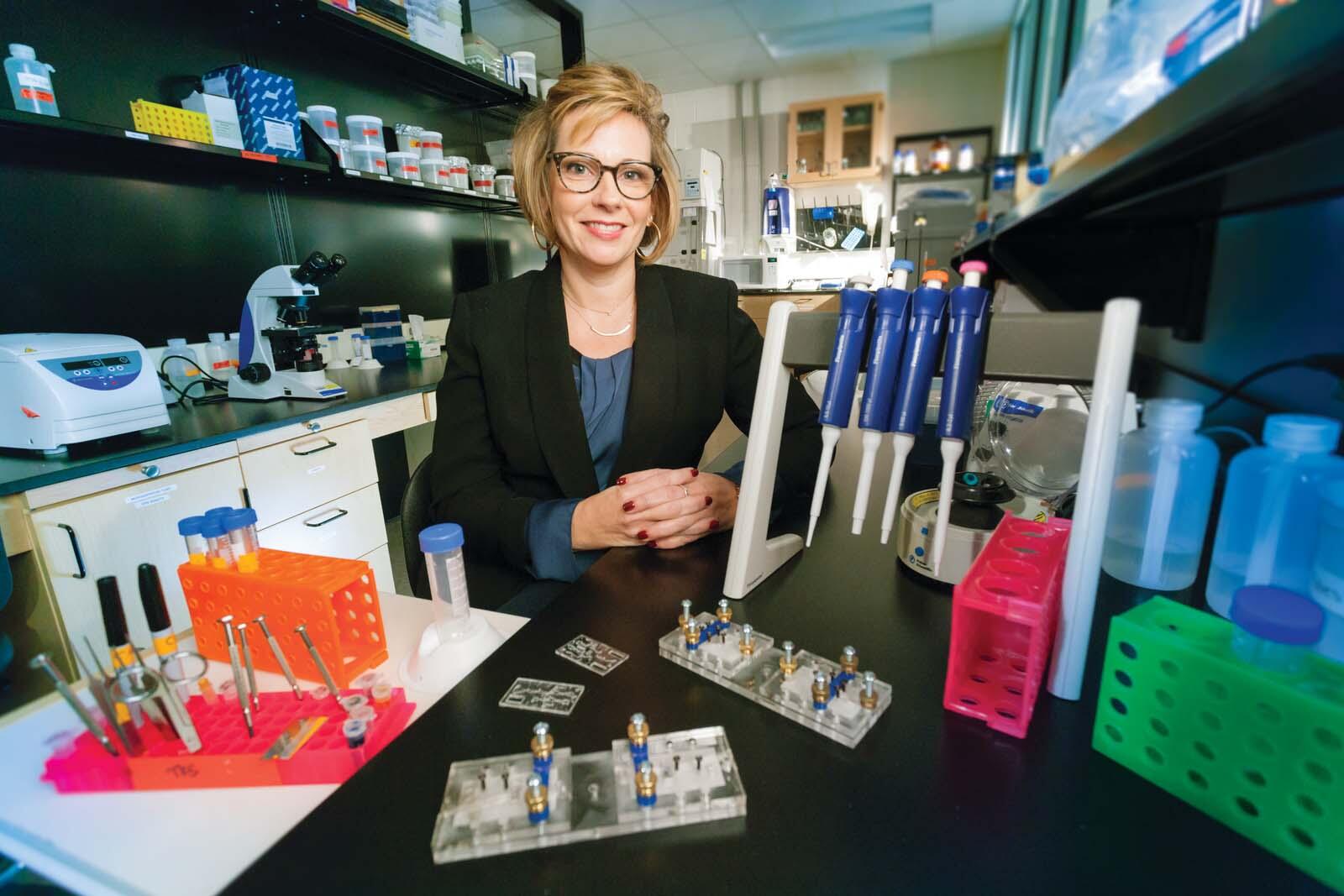
July 9, 2020
‘More cases will be solved’ now that Virginia has eliminated its rape kit backlog, VCU expert says
Share this story
Attorney General Mark R. Herring announced Wednesday that Virginia’s 2,665 previously untested rape kits — including kits that had gone untested for decades — have been tested, making Virginia just the seventh state to eliminate its rape kit backlog.
By eliminating Virginia’s backlog, 851 DNA profiles have been uploaded into CODIS, the national Combined DNA Index System; 354 “hits” have been sent to law enforcement agencies for further investigation; and at least one charge has been filed after DNA identification, with more anticipated as localities reopen and investigate cases.
Tracey Dawson Cruz, Ph.D., professor and chair of the Department of Forensic Science in the College of Humanities and Sciences at Virginia Commonwealth University, is an expert in forensic DNA analysis and has worked on innovations to speed up the processing of sexual assault DNA evidence.
The announcement that Virginia’s rape kit backlog has been eliminated, she said, is a “momentous occasion,” but more work remains to change the culture surrounding evidence submission for sexual assault cases.
What do you see as the significance of Virginia ending its rape kit backlog?
I think this is a pivotal moment for the Virginia [Department of Forensic Science] crime lab and for sexual assault victims across the state. Virginia was very aggressive with its efforts to identify those rape kits that were sitting in storage lockers and police agencies that had never been submitted. Once identified, they provided funding to have those kits tested and the identified backlog was cleared quite efficiently. What I most like is the unified and well-organized effort made by the crime lab leadership, police agencies statewide and the General Assembly — this effort is one that other states certainly envy. Now that those kits have been tested, the DNA profiles will sit in the state and national database and will be searched and used for solving crimes and bringing closure to victims for years to come. I suspect more cases will be solved with these profiles with time … which brings victims of violent crime hope, at least.
Why has ending the backlog been such a challenge across the country?
The backlog is challenging for several reasons. First, it is difficult for many states to even identify their backlog number because of the disconnect between law enforcement and state crime labs. Evidence is retained by law enforcement and until it is identified as potentially probative in a case, it may not be sent to the crime lab for testing. The labs are unaware of when kits are being held and thus are unable to really pinpoint a number on their own without significant interagency organized efforts statewide. Sexual assault kits often don't make it to testing because these cases are more likely to not be pursued by the victim (for fear of victim shaming or embarrassment) or they may not be tested by the agency if the suspect is a known individual who has had a consensual relationship with the victim in the past. When this type of circumstantial information is used to make a judgment call about testing, many kits end up not being tested — leading to the backlog crises. When these kits are not tested, the possibility of perpetrators of violent crimes going unidentified increases. So in recent years, legislative bodies across the country have been making efforts to identify stored kits and then to get them tested, regardless of the circumstances of the criminal case or position of the victim.
I would add that, while this is a momentous occasion that is worthy of celebration, we must still find ways to change the culture (long term) around evidence submission for sexual assault cases. Hopefully, this new approach will stick (even when not mandated by the state government) and law enforcement agencies will adopt new policies about immediate kit submission. With that, it will be important to assure that the state laboratories are equipped with personnel and infrastructure that will be required to keep up with the increased submission rate — newer, more automated methods and analytical devices with small footprints are still needed to help labs meet this goal.
Subscribe to VCU News
Subscribe to VCU News at newsletter.vcu.edu and receive a selection of stories, videos, photos, news clips and event listings in your inbox.









